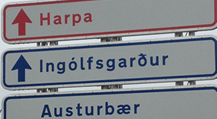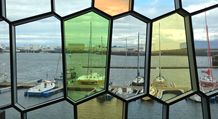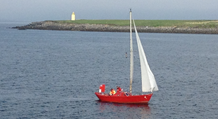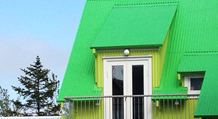Address by Madame Vigdís Finnbogadóttir, Former President of Iceland and UNESCO Goodwill Ambassador for Languages
Reykjavík 28 May 2014
Distinctive guests, ladies and gentlemen, a warm welcome to Iceland!
„Whoever doesn‘t live in poetry cannot survive here on earth“
said our Icelandic Nobel-prizewinning author, Halldór Laxness, in one of his outstanding novels in the late twentieth century.
It is hardly possible to commence an address here in Reykjavík, the UNESCO city of literature, without making reference to our literature – which in olden times was written on parchment, then on paper, next on typewriters, and now on computers. Innumerable tales have been told in many texts – whole sagas and epics – tales of peril at sea and long journeys between Iceland and the outside world – adventures that inspire imagination and creativity. And now the texts travel at the speed of light to distance corners of the globe – and exciting tales of faraway places are no longer as exotic as they once were. And we still see the technical possibilities expanding and developing, for transporting the very heart of the human spirit – words, the expression of the human mind, exchange of speech between people – which is on the programme of this LREC event here in Iceland.…. where more than 20 generations have kept our language alive almost unchanged for eleven hundred years.
The conservation of a language is a tremendous responsibility – for languages store up memories of what happened before our time – and they store up knowledge already acquired – not least knowledge of the environment, which is more vital for humanity than ever before, now when the whole world has become one region, one system, and wherever we are, we are constantly reminded to treat Mother Earth with care.
By the same token, a crucial issue is… how the technology under discussion here during these days is put to use, to invigorate every single language on earth – how it will be used to build bridges between languages, and invigorate every one of them – to minimise the barriers between languages, to facilitate translations between them – so that we will be able to live in each other‘s poetry – wherever we are on the planet. That is actually the core of the International Language Centre that has been established here at the University of Iceland, under the auspices of UNESCO, category 2, the only one in the world, and I have the honour is bearing my name.
As a UNESCO spokesman for the safeguarding of languages and their cultures, I imagine all those nations that emerged from the collapse of the Tower of Babel - to gain their own languages and their own cultures – as a huge multicoloured tapestry – a beautiful piece of art. Some of the threads in the tapestry are strong and dominant, while others are less noticeable, in pale and delicate colours. And in the fabric of the tapestry, it is not least those delicate shades which require our care and attention – because they are the threads that hold the tapestry together. That matters to mankind, because the question of how we survive here on earth depends on our ability to express ourselves.
The technology must be used to enlighten people about languages – to awaken their curiosity about languages, and their interest in how each language reflects the place where it is spoken. In Icelandic, for instance, we have more words than most other languages for the waves and the sea – the ocean that surrounds us – reflecting its many manifestations. And we have more weather-related words in Icelandic than in the average language – and everyone here will understand the need for that. And we have a rich and subtle vocabulary for describing horses – probably more than in any other language – except perhaps in the plains of eastern Asia – reflecting the fact that the Icelandic horse was the Icelanders' companion and only form of transport down the centuries, as Iceland was a roadless country until the early 20th century, a traditional society of fishermen and farmers. Everything in the world is reflected in languages – and that guides the way people live in every place.
It is thus of paramount importance that technology should be used to animate the spirit – and not to repress it, not to pave the way for human solitude - living with machines.
Ladies and gentlemen: “Culture means to do things the very best way,” a distinguished Icelandic philosopher has said. And that is the principle I hope to see in technological development regarding the languages of the world.
Ladies and Gentlemen, - I wish you fruitful deliberations on this very important subject in the days to come.



















